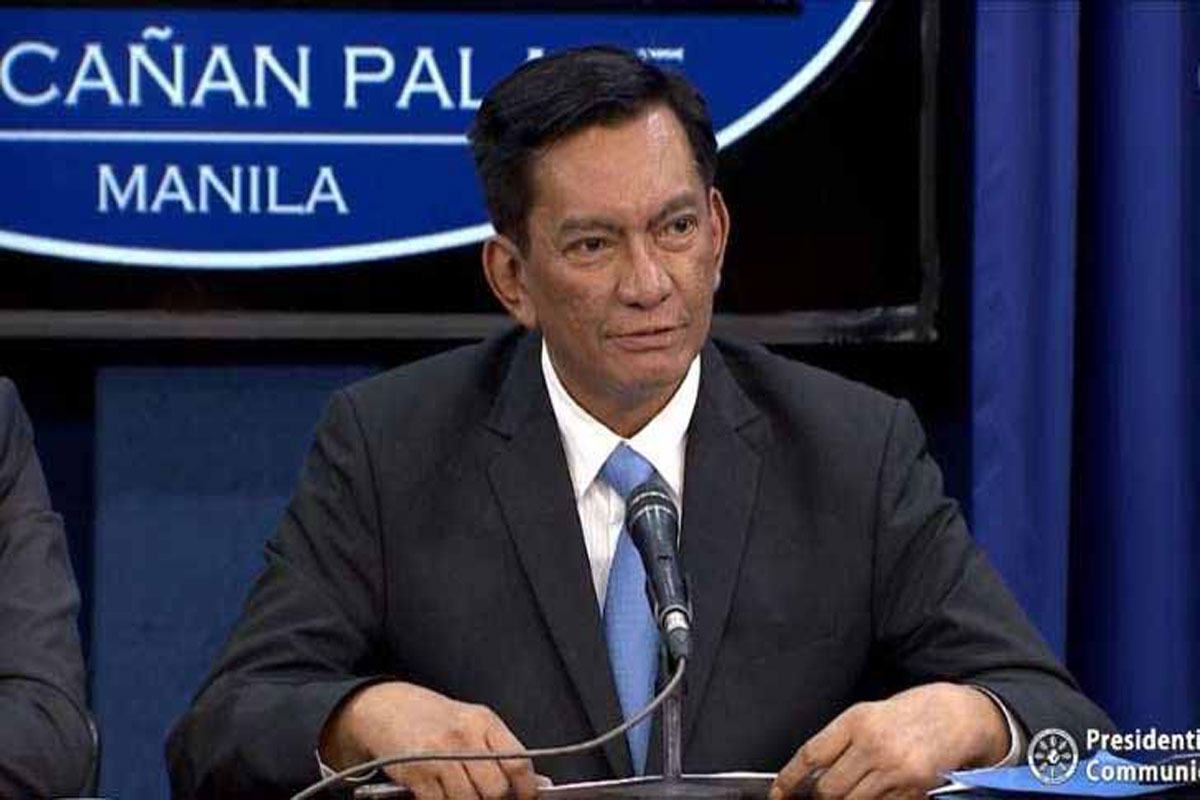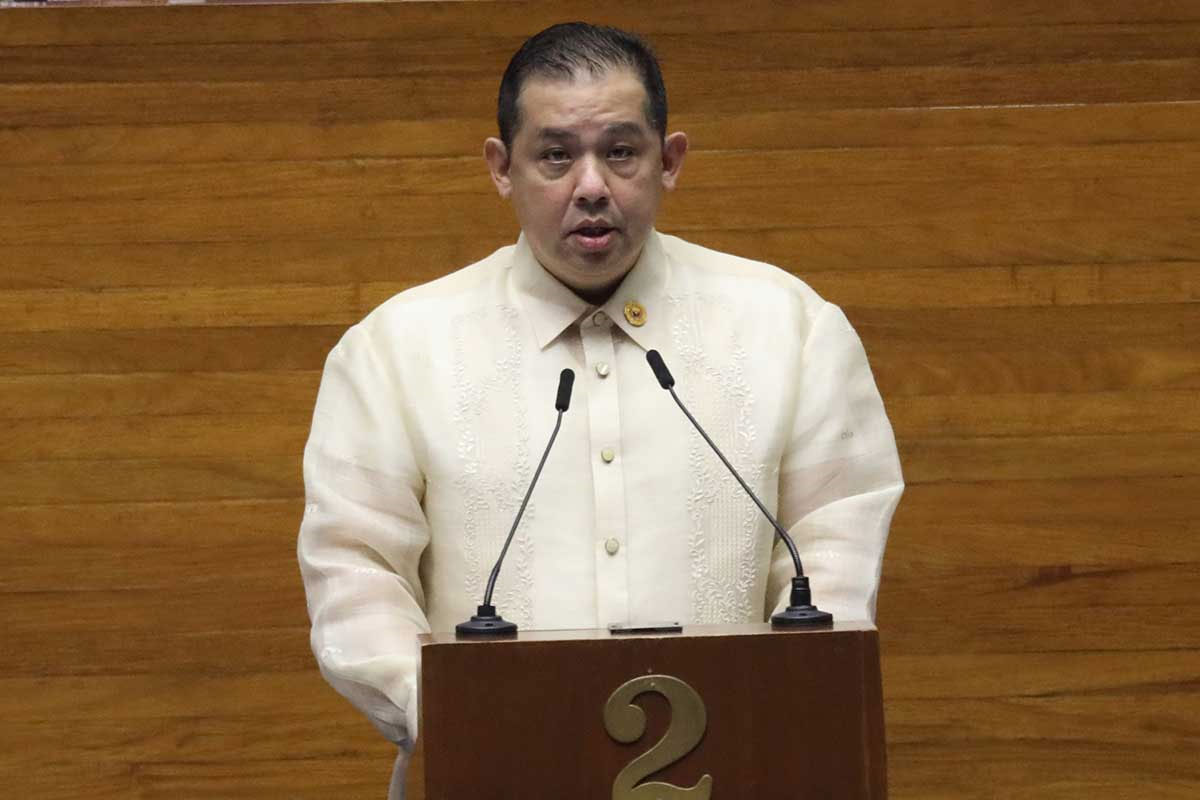
PH must receive redress for ‘loss and damage’
A HOUSE leader has said countries like the Philippines must continue to push for acknowledgment and compensation for “loss and damage,” noting that “Typhoon Paeng wasn’t supposed to be that strong, and yet killed several dozens of people due to stronger than expected floods.”
“Climate change kills. There is loss and damage. And countries like the Philippines that are the most at-risk due to its impacts have a moral responsibility and the moral ascendancy to fight for the principle of loss and damage,” Albay 2nd District Representative Joey Sarte Salceda, chairman of the House Committee on Ways and Means, said.
In international climate law, loss and damage refer to the permanent loss or reparable damage caused by climate change, including extreme weather events like typhoons and slow-onset events like sea-level rise.
In a related development, Basilan Rep. Mujiv Hataman said he is heartbroken by the devastation caused by Severe Tropical Storm Paeng, expressing sympathy to the victims of calamity.
“Nakikiramay at nakikidalamhati kami sa mga kapamilya at kaanak ng mga nasawi sa pananalasa ng bagyong Paeng, kasama ang napakaraming mag-anak na nasalanta ng kalamidad na ito,” Hataman said as he appealed for help and assistance to all the victims of Paeng.
“Nananawagan tayo sa kinauukulang ahensiya ng gobyerno, maging sa pribadong sektor, na magpadala ng agarang tulong para sa mga biktima ng bagyo, lalong-lalo na sa lugar ng BARMM (Bangsamoro Autonomous Region in Muslim Mindanao) kung saan mataas ang bilang ng mga nasawi. Hiling din natin sa national government na hangga’t maaari ay i-augment ang kapasidad ng LGUs (local government units) at tumulong sa search and rescue operations para sa mga nananatiling unaccounted pa at nawawala nating kababayan,” Hataman said.
“Pagkatapos ng ating pakikiramay at pagtulong sa mga biktima ng bagyo, hinihikayat ko ang lahat na pag-aralang mabuti kung bakit nangyari ang mga naganap nitong nakaraan, hindi upang magbunton ng sisi kundi maghanap ng mga paraan kung paano natin ito maiiwasan sa mga susunod na kalamidad. Nais rin nating ipahayag ang ating pagsaludo sa ating mga rescue workers na itinataya ang sarili nilang buhay sa pagliligtas ng mga nasalanta nating kababayan. Sa ganitong mga pagkakataon, nakikita natin ang kanilang katapangan at dedikasyon sa sinumpaang tungkulin.
Dalangin namin ay manatiling ligtas ang lahat at sama-sama tayong tumulong sa mga direktang apektado ng bagyong Paeng,” Hataman added.
Salceda, who was formerly the co-chair of the United Nations Green Climate Fund, will be part of the Philippine delegation to the Conference of Parties (COP) 27, or the 2022 United Nations Climate Change Conference, set in Egypt this year.
“International aid and green financing are not enough. There has to be some form of compensation to the most vulnerable and affected countries,” Salceda said.
“Due to climate risks, we are now the most at-risk country in the world, according to the 2022 Global Risk Report. Arguably, nobody is more affected by climate change than we are. If we are soft on this position, we throw other climate-vulnerable countries under the bus. So, we have to be strong on loss and damage,” Salceda added.
“Paeng isn’t even that strong, as far as typhoons in the October-November season go. Some 45 people dead during a ‘normal’ storm is no small matter. It’s the climate problem manifesting itself in the death toll,” he said.
“It didn’t even hit Mindanao, as far as landfalls go. But most of the dead [are] from Mindanao. More communities are becoming vulnerable to the effects of stronger weather events,” Salceda added.
Salceda said he hopes that vulnerable countries will band together in COP 27 to demand more from major polluters like the United States and the European Union (EU), as well as from the world’s oil-rich countries, which tend to be the highest per-capital polluters.
Salceda said that apart from demanding more support for the country’s clean energy transition, nations like the Philippines should also ask for more direct compensation mechanisms and funds that can be activated as soon as climate-related disasters take place.
“If the world won’t achieve consensus on loss and damage, we at least need a global ‘quick response fund’ similar to our Calamity Fund but funded to by countries according to their pollution contributions, and accessed by countries as soon as climate-related disasters affect them,” he said.
Salceda said that the fund can be administered by a committee where both developed and developing countries are represented.
“Mitigation and adaptation measures are not enough. They’re good, but not enough. And coming from a disaster like Paeng, we have the moral duty and moral ascendancy to make demands to the world’s biggest polluters,” Salceda added.























